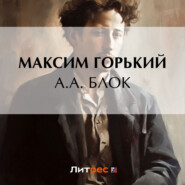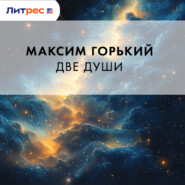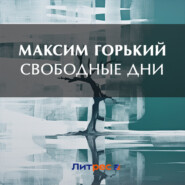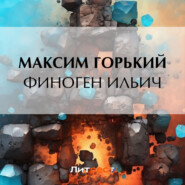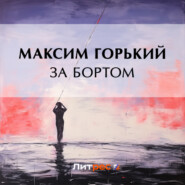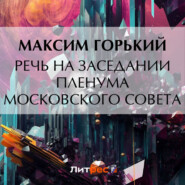По всем вопросам обращайтесь на: info@litportal.ru
(©) 2003-2025.
✖
Through Russia
Настройки чтения
Размер шрифта
Высота строк
Поля
THE DEAD MAN
One evening I was sauntering along a soft, grey, dusty track between two breast-high walls of grain. So narrow was the track that here and there tar-besmeared cars were lying – tangled, broken, and crushed – in the ruts of the cartway.
Field mice squeaked as a heavy car first swayed – then bent forwards towards the sun-baked earth. A number of martins and swallows were flitting in the sky, and constituting a sign of the immediate proximity of dwellings and a river; though for the moment, as my eyes roved over the sea of gold, they encountered naught beyond a belfry rising to heaven like a ship's mast, and some trees which from afar looked like the dark sails of a ship. Yes, there was nothing else to be seen save the brocaded, undulating steppe where gently it sloped away south-westwards. And as was the earth's outward appearance, so was that of the sky – equally peaceful.
Invariably, the steppe makes one feel like a fly on a platter. Invariably, it inclines one to believe, when the centre of the expanse is reached, that the earth lies within the compass of the sky, with the sun embracing it, and the stars hemming it about as, half-blinded, they stare at the sun's beauty.
Presently the sun's huge, rosy-red disk impinged upon the blue shadows of the horizon before preparing to sink into a snow-white cloud-bank; and as it did so it bathed the ears of grain around me in radiance and caused the cornflowers to seem the darker by comparison; and the stillness, the herald of night, to accentuate more than ever the burden of the earth's song.
Fanwise then spread the ruddy beams over the firmament; and, in so doing, they cast upon my breast a shaft of light like Moses' rod, and awoke therein a flood of calm, but ardent, sentiments which set me longing to embrace all the evening world, and to pour into its ear great, eloquent, and never previously voiced, utterances.
Now, too, the firmament began to spangle itself with stars; and since the earth is equally a star, and is peopled with humankind, I found myself longing to traverse every road throughout the universe, and to behold, dispassionately, all the joys and sorrows of life, and to join my fellows in drinking honey mixed with gall.
Yet also there was upon me a feeling of hunger, for not since the morning had my wallet contained a morsel of food. Which circumstance hindered the process of thought, and intermittently vexed me with the reflection that, rich though is the earth, and much thence though humanity has won by labour, a man may yet be forced to walk hungry… .
Suddenly the track swerved to the right, and as the walls of grain opened out before me, there lay revealed a steppe valley, with, flowing at its bottom, a blue rivulet, and spanning the rivulet, a newly-constructed bridge which, with its reflection in the water, looked as yellow as though fashioned of rope. On the further side of the rivulet some seven white huts lay pressed against a small declivity that was crowned with a cattle-fold, and amid the silver-grey trunks of some tall black poplars whose shadows, where they fell upon the hamlet, seemed as soft as down a knee-haltered horse, was stumping with swishing tail. And though the air, redolent of smoke and tar and hemp ensilage, was filled with the sounds of poultry cackling and a baby crying during the process of being put to bed, the hubbub in no way served to dispel the illusion that everything in the valley was but part of a sketch executed by an artistic hand, and cast in soft tints which the sun had since caused, in some measure, to fade.
In the centre of the semi-circle of huts there stood a brick-kiln, and next to it, a high, narrow red chapel which resembled a one-eyed watchman. And as I stood gazing at the scene in general, a crane stooped with a faint and raucous cry, and a woman who had come out to draw water looked as though, as she raised bare arms to stretch herself upwards – cloud-like, and white-robed from head to foot – she were about to float away altogether.
Also, near the brick-kiln there lay a patch of black mud in the glistening, crumpled-velvet blue substance of which two urchins of five and three were, breechless, and naked from the waist upwards, kneading yellow feet amid a silence as absorbed as though their one desire in life had been to impregnate the mud with the red radiance of the sun. And so much did this laudable task interest me, and engage my sympathy and attention, that I stopped to watch the strapping youngsters, seeing that even in mire the sun has a rightful place, for the reason that the deeper the sunlight's penetration of the soil, the better does that soil become, and the greater the benefit to the people dwelling on its surface.
Viewed from above, the scene lay, as it were, in the palm of one's hand. True, by no manner of means could such lowly farm cots provide me with a job, but at least should I, for that evening, be able to enjoy the luxury of a chat with the cots' kindly inhabitants. Hence, with, in my mind, a base and mischievous inclination to retail to those inhabitants tales of the marvellous kind of which I knew them to stand wellnigh as much in need as of bread, I resumed my way, and approached the bridge.
As I did so, there arose from the ground-level an animated clod of earth in the shape of a sturdy individual. Unwashed and unshaven, he had hanging on his frame an open canvas shirt, grey with dust, and baggy blue breeches.
"Good evening," I said to the fellow.
"I wish you the same," he replied. "Whither are you bound?"
"First of all, what is the name of this river?"
"What is its name? Why, it is the Sagaidak, of course."
On the man's large, round head there was a shock of bristling, grizzled curls, while pendent to the moustache below it were ends like those of the moustache of a Chinaman. Also, as his small eyes scanned me with an air of impudent distrust, I could detect that they were engaged in counting the holes and dams in my raiment. Only after a long interval did he draw a deep breath as from his pocket he produced a clay pipe with a cane mouthpiece, and, knitting his brows attentively, fell to peering into the pipe's black bowl. Then he said:
"Have you matches?"
I replied in the affirmative.
"And some tobacco?"
For awhile he continued to contemplate the sun where that luminary hung suspended above a cloud-bank before finally declining. Then he remarked:
"Give me a pinch of the tobacco. As for matches, I have some."
So both of us lit up; after which he rested his elbows upon the balustrade of the bridge, leant back against the central stanchions, and for some time continued merely to emit and inhale blue coils of smoke. Then his nose wrinkled, and he expectorated.
"Muscovite tobacco is it?" he inquired.
"No – Roman, Italian."
"Oh!" And as the wrinkles of his nose straightened themselves again he added: "Then of course it is good tobacco."
To enter a dwelling in advance of one's host is a breach of decorum; wherefore, I found myself forced to remain standing where I was until my interlocutor's tale of questions as to my precise identity, my exact place of origin, my true destination, and my real reasons for travelling should tardily win its way to a finish. Greatly the process vexed me, for I was eager, rather, to learn what the steppe settlement might have in store for my delectation.
"Work?" the fellow drawled through his teeth. "Oh no, there is no work to be got here. How could there be at this season of the year?"
Turning aside, he spat into the rivulet.
On the further bank of the latter, a goose was strutting importantly at the head of a string of round, fluffy, yellow goslings, whilst driving the brood were two little girls – the one a child but little larger than the goose itself, dressed in a red frock, and armed with a switch; and the other one a youngster absolutely of a size with the bird, pale of feature, plump of body, bowed of leg, and grave of expression.
"Ufim!" came at this moment in the strident voice of a woman unseen, but incensed; upon which my companion bestowed upon me a sidelong nod, and muttered with an air of appreciation:
"THERE'S lungs for you!"
Whereafter, he fell to twitching the toes of a chafed and blackened foot, and to gazing at their nails. His next question was:
"Are you, maybe, a scholar?"
"Why do you ask?"
"Because, if you are, you might like to read the Book over a corpse."
And so proud, apparently, was he of the proposal that a faint smile crossed his flaccid countenance.
"You see, it would be work," he added with his brown eyes veiled, "whilst, in addition, you would be paid ten kopecks for your trouble, and allowed to keep the shroud."
"And should also be given some supper, I suppose?"
"Yes – and should also be given some supper."
"Where is the corpse lying?"
"In my own hut. Shall we go there?"
Off we set. En route we heard once more a strident shout of:
"Ufi-i-im!"
As we proceeded, shadows of trees glided along the soft road to meet us, while behind a clump of bushes on the further bank of the rivulet some children were shouting at their play. Thus, what with the children's voices, and the purling of the water, and the noise of someone planing a piece of wood, the air seemed full of tremulous, suspended sound. Meanwhile, my host said to me with a drawl:
"Once we did have a reader here. An old woman she was, a regular old witch who at last had to be removed to the town for amputation of the feet. They might well have cut off her tongue too whilst they were about it, since, though useful enough, she could rail indeed!"
Presently a black puppy, a creature of about the size of a toad, came ambling, three-legged fashion, under our feet. Upon that it stiffened its tail, growled, and snuffed the air with its tiny pink nose.
Next there popped up from somewhere or another a barefooted young woman. Clapping her hands, she bawled:
"Here, you Ufim, how I have been calling for you, and calling for you!"
One evening I was sauntering along a soft, grey, dusty track between two breast-high walls of grain. So narrow was the track that here and there tar-besmeared cars were lying – tangled, broken, and crushed – in the ruts of the cartway.
Field mice squeaked as a heavy car first swayed – then bent forwards towards the sun-baked earth. A number of martins and swallows were flitting in the sky, and constituting a sign of the immediate proximity of dwellings and a river; though for the moment, as my eyes roved over the sea of gold, they encountered naught beyond a belfry rising to heaven like a ship's mast, and some trees which from afar looked like the dark sails of a ship. Yes, there was nothing else to be seen save the brocaded, undulating steppe where gently it sloped away south-westwards. And as was the earth's outward appearance, so was that of the sky – equally peaceful.
Invariably, the steppe makes one feel like a fly on a platter. Invariably, it inclines one to believe, when the centre of the expanse is reached, that the earth lies within the compass of the sky, with the sun embracing it, and the stars hemming it about as, half-blinded, they stare at the sun's beauty.
Presently the sun's huge, rosy-red disk impinged upon the blue shadows of the horizon before preparing to sink into a snow-white cloud-bank; and as it did so it bathed the ears of grain around me in radiance and caused the cornflowers to seem the darker by comparison; and the stillness, the herald of night, to accentuate more than ever the burden of the earth's song.
Fanwise then spread the ruddy beams over the firmament; and, in so doing, they cast upon my breast a shaft of light like Moses' rod, and awoke therein a flood of calm, but ardent, sentiments which set me longing to embrace all the evening world, and to pour into its ear great, eloquent, and never previously voiced, utterances.
Now, too, the firmament began to spangle itself with stars; and since the earth is equally a star, and is peopled with humankind, I found myself longing to traverse every road throughout the universe, and to behold, dispassionately, all the joys and sorrows of life, and to join my fellows in drinking honey mixed with gall.
Yet also there was upon me a feeling of hunger, for not since the morning had my wallet contained a morsel of food. Which circumstance hindered the process of thought, and intermittently vexed me with the reflection that, rich though is the earth, and much thence though humanity has won by labour, a man may yet be forced to walk hungry… .
Suddenly the track swerved to the right, and as the walls of grain opened out before me, there lay revealed a steppe valley, with, flowing at its bottom, a blue rivulet, and spanning the rivulet, a newly-constructed bridge which, with its reflection in the water, looked as yellow as though fashioned of rope. On the further side of the rivulet some seven white huts lay pressed against a small declivity that was crowned with a cattle-fold, and amid the silver-grey trunks of some tall black poplars whose shadows, where they fell upon the hamlet, seemed as soft as down a knee-haltered horse, was stumping with swishing tail. And though the air, redolent of smoke and tar and hemp ensilage, was filled with the sounds of poultry cackling and a baby crying during the process of being put to bed, the hubbub in no way served to dispel the illusion that everything in the valley was but part of a sketch executed by an artistic hand, and cast in soft tints which the sun had since caused, in some measure, to fade.
In the centre of the semi-circle of huts there stood a brick-kiln, and next to it, a high, narrow red chapel which resembled a one-eyed watchman. And as I stood gazing at the scene in general, a crane stooped with a faint and raucous cry, and a woman who had come out to draw water looked as though, as she raised bare arms to stretch herself upwards – cloud-like, and white-robed from head to foot – she were about to float away altogether.
Also, near the brick-kiln there lay a patch of black mud in the glistening, crumpled-velvet blue substance of which two urchins of five and three were, breechless, and naked from the waist upwards, kneading yellow feet amid a silence as absorbed as though their one desire in life had been to impregnate the mud with the red radiance of the sun. And so much did this laudable task interest me, and engage my sympathy and attention, that I stopped to watch the strapping youngsters, seeing that even in mire the sun has a rightful place, for the reason that the deeper the sunlight's penetration of the soil, the better does that soil become, and the greater the benefit to the people dwelling on its surface.
Viewed from above, the scene lay, as it were, in the palm of one's hand. True, by no manner of means could such lowly farm cots provide me with a job, but at least should I, for that evening, be able to enjoy the luxury of a chat with the cots' kindly inhabitants. Hence, with, in my mind, a base and mischievous inclination to retail to those inhabitants tales of the marvellous kind of which I knew them to stand wellnigh as much in need as of bread, I resumed my way, and approached the bridge.
As I did so, there arose from the ground-level an animated clod of earth in the shape of a sturdy individual. Unwashed and unshaven, he had hanging on his frame an open canvas shirt, grey with dust, and baggy blue breeches.
"Good evening," I said to the fellow.
"I wish you the same," he replied. "Whither are you bound?"
"First of all, what is the name of this river?"
"What is its name? Why, it is the Sagaidak, of course."
On the man's large, round head there was a shock of bristling, grizzled curls, while pendent to the moustache below it were ends like those of the moustache of a Chinaman. Also, as his small eyes scanned me with an air of impudent distrust, I could detect that they were engaged in counting the holes and dams in my raiment. Only after a long interval did he draw a deep breath as from his pocket he produced a clay pipe with a cane mouthpiece, and, knitting his brows attentively, fell to peering into the pipe's black bowl. Then he said:
"Have you matches?"
I replied in the affirmative.
"And some tobacco?"
For awhile he continued to contemplate the sun where that luminary hung suspended above a cloud-bank before finally declining. Then he remarked:
"Give me a pinch of the tobacco. As for matches, I have some."
So both of us lit up; after which he rested his elbows upon the balustrade of the bridge, leant back against the central stanchions, and for some time continued merely to emit and inhale blue coils of smoke. Then his nose wrinkled, and he expectorated.
"Muscovite tobacco is it?" he inquired.
"No – Roman, Italian."
"Oh!" And as the wrinkles of his nose straightened themselves again he added: "Then of course it is good tobacco."
To enter a dwelling in advance of one's host is a breach of decorum; wherefore, I found myself forced to remain standing where I was until my interlocutor's tale of questions as to my precise identity, my exact place of origin, my true destination, and my real reasons for travelling should tardily win its way to a finish. Greatly the process vexed me, for I was eager, rather, to learn what the steppe settlement might have in store for my delectation.
"Work?" the fellow drawled through his teeth. "Oh no, there is no work to be got here. How could there be at this season of the year?"
Turning aside, he spat into the rivulet.
On the further bank of the latter, a goose was strutting importantly at the head of a string of round, fluffy, yellow goslings, whilst driving the brood were two little girls – the one a child but little larger than the goose itself, dressed in a red frock, and armed with a switch; and the other one a youngster absolutely of a size with the bird, pale of feature, plump of body, bowed of leg, and grave of expression.
"Ufim!" came at this moment in the strident voice of a woman unseen, but incensed; upon which my companion bestowed upon me a sidelong nod, and muttered with an air of appreciation:
"THERE'S lungs for you!"
Whereafter, he fell to twitching the toes of a chafed and blackened foot, and to gazing at their nails. His next question was:
"Are you, maybe, a scholar?"
"Why do you ask?"
"Because, if you are, you might like to read the Book over a corpse."
And so proud, apparently, was he of the proposal that a faint smile crossed his flaccid countenance.
"You see, it would be work," he added with his brown eyes veiled, "whilst, in addition, you would be paid ten kopecks for your trouble, and allowed to keep the shroud."
"And should also be given some supper, I suppose?"
"Yes – and should also be given some supper."
"Where is the corpse lying?"
"In my own hut. Shall we go there?"
Off we set. En route we heard once more a strident shout of:
"Ufi-i-im!"
As we proceeded, shadows of trees glided along the soft road to meet us, while behind a clump of bushes on the further bank of the rivulet some children were shouting at their play. Thus, what with the children's voices, and the purling of the water, and the noise of someone planing a piece of wood, the air seemed full of tremulous, suspended sound. Meanwhile, my host said to me with a drawl:
"Once we did have a reader here. An old woman she was, a regular old witch who at last had to be removed to the town for amputation of the feet. They might well have cut off her tongue too whilst they were about it, since, though useful enough, she could rail indeed!"
Presently a black puppy, a creature of about the size of a toad, came ambling, three-legged fashion, under our feet. Upon that it stiffened its tail, growled, and snuffed the air with its tiny pink nose.
Next there popped up from somewhere or another a barefooted young woman. Clapping her hands, she bawled:
"Here, you Ufim, how I have been calling for you, and calling for you!"












